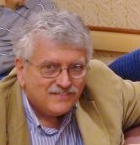 We’ve all heard of “helicopter parents” — the ones who try to micromanage their child’s life. The theory is that involvement of that type hurts the child in a number of ways.
We’ve all heard of “helicopter parents” — the ones who try to micromanage their child’s life. The theory is that involvement of that type hurts the child in a number of ways.
It turns out that how teachers perceive parental involvement in the child’s education actually is a predictor of academic success. Further, there is training that could enable teachers to improve their interactions with parents. That’s a summary of the findings of a new research study from the University of Missouri — Columbia.
If there is a causal relationship between positive parental involvement and student performance, then anything that enhances the quality of that involvement should enhance academic outcomes.
“If” is important. The study establishes an apparent association between positive involvement and performance. It doesn’t document a mechanism by which positive parental involvement affects performance. Is there an actual change in student behavior or in the teacher’s perception of that behavior? We don’t know. It makes logical sense that students should do better when parents provide positive support. However, until we understand how the mechanism works, this could be a spurious finding. So, should schools invest in training to improve interactions with parents? There may be a number of other reasons to do that, but we don’t know for sure if that investment would improve achievement. The Scottish verdict, “Not Proven,” applies.
One of the most common errors in statistical analysis by non-statisticians is the assumption that an association (correlation) proves a causal relationship. Simply, if X is associated with Y, then X causes Y. That’s just not true. There needs to be a logical explanation of how X affects Y before we can make the case for causality.
To illustrate this by example, males who grow old tend to get prostate cancer. Statistically, age is correlated with likelihood of getting prostate cancer. However, age doesn’t cause prostate cancer. Other things happening in the body make older males more susceptible to this cancer. We need to know what these other things are before we can talk about causality.
Sources:
-
University of Missouri-Columbia. “Students more likely to succeed if teachers have positive perceptions of parents: Teacher training program can help promote parent involvement in education.” ScienceDaily. ScienceDaily, 21 February 2017. <www.sciencedaily.com/releases/2017/02/170221101032.htm>.